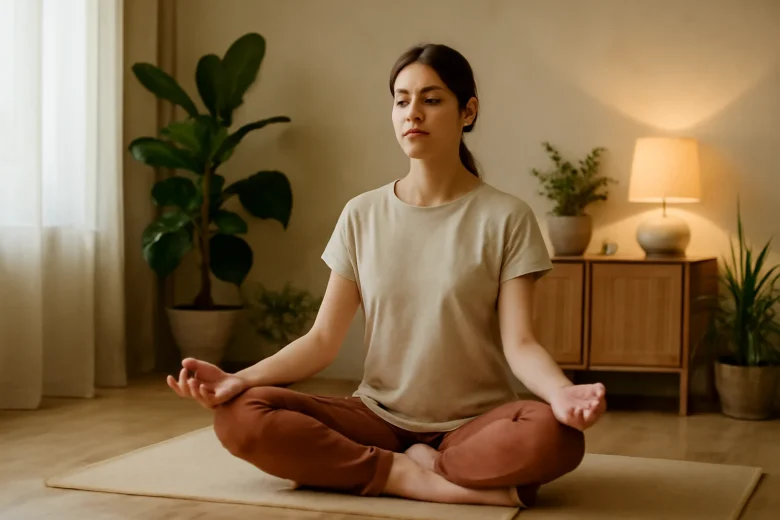In today’s busy society, many people deal with stress on a daily basis. It’s easy to feel overwhelmed when juggling work, family, finances, and frequent distractions. You can’t eliminate stress completely, but you can learn to manage it and bring more peace and balance into your life. A stress-free life doesn’t mean avoiding responsibilities; it means developing healthier habits, developing a more positive mindset, and making small daily improvements that contribute to your well-being. When you integrate stress management into your daily routine, you’re likely to feel better, happier, and more in control.
Why a Calming Morning Routine Is Important
How you start your day often influences the rest of the day. A calm and purposeful start to the day can help reduce stress and create a positive mood. Simple things like getting up early, drinking water, stretching, or eating a calming breakfast can make your morning less hectic and more peaceful. Not checking email or social media first thing in the morning can also help lower stress levels at the start of the day. A healthy morning routine can ground you and help you avoid stress.
Nourishing the Body for Wellness
A balanced diet is essential for optimal health and stress reduction. Eating a diet rich in unprocessed foods like fruits, vegetables, whole grains, and protein can keep your energy levels stable and improve your mood. When your body is well-nourished, it can better handle problems and stay focused. On the other hand, processed foods and excess sugar can make you tired and depressed, which can make it harder to manage stress. A diet that provides long-lasting energy will keep you feeling energized and full of energy all day long.
The Role of Daily Movement in Reducing Stress
One of the simplest and best ways to manage stress is to stay active. Exercise releases endorphins, a natural mood enhancer that makes you feel better and less stressed. Exercise doesn’t necessarily mean long workouts. Even short walks, stretching, or light exercises can be beneficial. Incorporating fitness into your daily routine is a great way to manage stress and stay fit. Regular exercise makes you healthier and helps you manage stress better.
Prioritize Sleep and Rest
Rest is essential for your health and for managing stress. Lack of sleep can make it difficult for your body to cope with daily challenges, and stress levels can rise quickly. You can improve your sleep quality by developing regular sleep habits, such as going to bed at the same time every night, minimizing screen time before bed, and keeping your room quiet. Adequate sleep helps your body repair itself, giving you more energy and maintaining emotional balance. Prioritizing rest can make it easier to manage stress and significantly improve your overall health.
How to Manage Stress with Mindfulness
Mindfulness is a wonderful way to de-stress. It helps you stop dwelling on the past and the future, two major sources of stress. Deep breathing, meditation, or simply a few moments of quiet reflection can help you feel calm. You can also practice mindfulness during daily activities, such as eating, walking, or even working, by focusing your full attention on what you’re doing. Regularly practicing mindfulness can help you find inner peace and make it easier to deal with problems more calmly.
The Importance of Social Connections for Happiness
Relationships are crucial for reducing stress and improving your mental health. Spending time with family, friends, or support groups can make you feel better, happier, and more supported. Discussing problems with others can help you release emotional baggage and gain a fresh perspective. Even small daily actions, like sharing a joke or having a meaningful conversation, can brighten your day and make you feel less lonely. Building and maintaining strong social connections is crucial for a stress-free life and overall well-being.
Finding Balance in Your Daily Life
A stress-free life is all about finding balance. This includes finding a balance between work and rest, responsibilities and spare time, and productivity and relaxation. Without balance, stress can quickly take over, leaving you exhausted and frustrated. Small changes in your daily routine, such as setting boundaries, managing your time, and taking breaks when needed, can help you regain a sense of balance.
The Role of Gratitude and Positivity
Another simple and effective way to reduce stress and improve your well-being is to practice gratitude. Taking time each day to notice the good things in life, both big and small, can help you focus on the positive instead of worrying about them. Gratitude helps us see things with a more optimistic perspective. It reminds us that even in difficult situations, there’s always something to be thankful for. Positive thinking doesn’t ignore difficulties; it gives you the right mindset to handle them calmly and successfully. When you practice gratitude and positivity, it becomes easier to manage stress, and you enjoy your daily life more.
Develop Lasting Habits for a Stress-free Life
Living a stress-free life isn’t about quick fixes; it’s about developing habits that help you stay healthy. Small daily actions like exercise, healthy eating, staying alert, and getting enough sleep can have long-term effects. Over time, these habits become a way of life, making stress management easier and more natural. Anyone can develop habits that reduce stress and improve health by focusing on consistency instead of perfection. The key is to start small and turn them into habits that transform your daily life.
Conclusion
You can prioritize health and balance and live a stress-free life through simple, regular efforts. Stress is easier to manage when you start your day with a calming routine, eat balanced meals, stay active, get enough sleep, practice mindfulness, and connect with others. Finding balance, practicing gratitude, and developing lasting habits can lead to a better and happier life. Stress is a part of life, but it doesn’t have to overwhelm it. By following a few simple, effective health habits, anyone can achieve a life of peace, vitality, and lasting health.
FAQs
1. What simple things can you do every day to escape stress?
Starting your day calmly, eating balanced meals, exercising, and staying mindful are all simple things that can help you live a stress-free life.
2. How does exercise help relieve stress?
Exercise helps your body produce endorphins, which help you better manage stress. Endorphins make you feel better, reduce stress, and help you cope with it more effectively.
3. Can mindfulness really help relieve stress?
Yes, mindfulness can help you relax, worry less, and think more clearly, making it easier to manage stress.
4. Why is sleep so important for stress management?
Adequate sleep helps your body and mind recover, making you more resilient and preventing stress from taking over your life.
5. Can you live a completely stress-free life?
It’s impossible to eliminate all stress, but by developing good habits and managing it effectively, you can achieve a more balanced and peaceful life.




